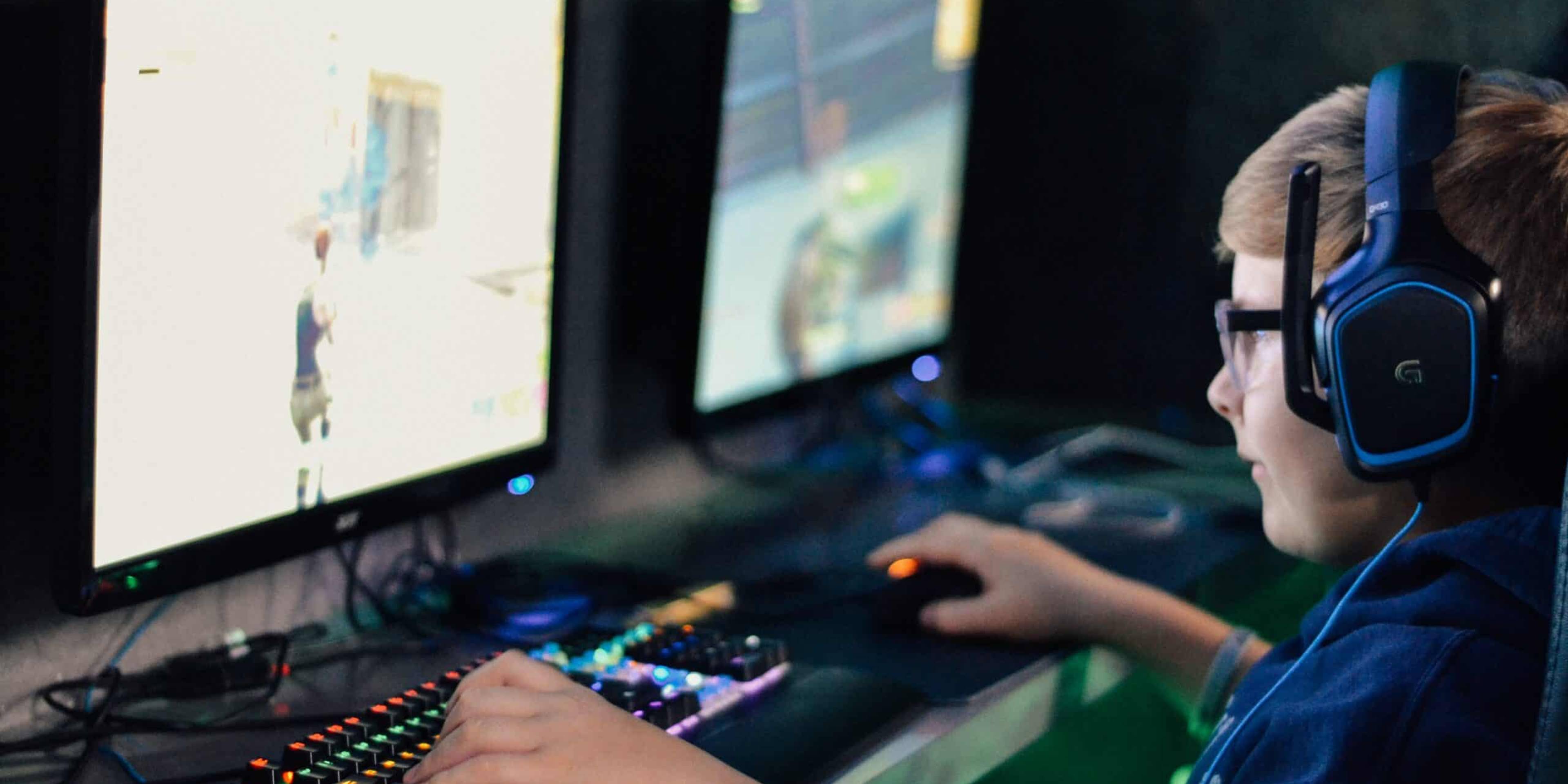February 10, 2021
Gaming: Friend or Foe?
By Dr Kathy Weston

Reflect
I think it is safe to say that gaming may be one of the more popular lockdown activities among our tweens and teens and, arguably, it is also one of the most contentious.
Parents (myself included) can feel weary of the constant dance of “how long have you been on it now?” and the inevitable, defensive replies from our offspring, who are insistent on “one more game”. It can feel entirely counter-intuitive, particularly when children are maxed out on screens during the school day, to allow even more screen time.
However, an honest review of the research around gaming might just alleviate parental fears, steer us towards appreciating the benefits that games can bring and remove gaming resistance.
I have to confess that I am not a fan of gaming in my adult years, despite being a passionate advocate of Donkey Kong, Pac-Man and Frogger when I was younger. Gaming is unrecognisably different now; fast-paced, graphic, interactive and equipped with algorithms that are purposefully engaging and potentially addictive.
Young people regularly talk of aspirations to be professional gamers and E-sports (competitive video gaming) is now a highly lucrative global industry. Some parents find the whole thing rather distasteful and attempt to curb all gaming at home. Others are supportive of any sign of occupational aspiration in their teens. Most of our children will end up following more traditional routes of education and employment, but can gaming benefit them on this journey in any way?
Motivate
Last week, I interviewed family digital technology and gaming journalist, Andy Robertson, author of Taming Gaming and expert on games of every ilk. At the start of the interview, I hoped my lack of appetite for gaming wouldn’t be apparent. By the end, I was running into the kitchen, fired up and ready to suggest new games for my sons to try.
I had been aware of the positive benefits associated with gaming from academic literature (which always comes as a shock to parents), but Andy opened my eyes to benefits that go far beyond improvements in audio-visual processing. He showed me how gaming can play a large role in developing children’s critical and strategic thinking skills, empathy and digital resilience. His knowledge of different types of games (way beyond Fortnite and Minecraft) was inspiring and I exited the interview and immediately highlighted his carefully curated list of the best games to promote critical thinking on my social media.
Two games stuck in my mind. One, called Headliner, turns players into newspaper editors who decide what content goes in front of readers. Can you imagine the conversations that a game like this could spark about how we digest news media and the importance of remaining critical consumers?
Another game, Bury Me My Love, highlights the experience of refugees and the often perilous journeys they embark on to reach a safe place. Andy explained how his whole family has played this particular game and described the impact it has had on him personally. In the game, you take on the role of a refugee’s husband, advising his wife as she makes the perilous journey to reach her destination. The game plays out in real time via messages to your phone, as she contacts you at various points on her journey, updating you on her progress and the challenges that she faces.
When hard decisions are placed in front of her, you play a role in helping her to decide her next steps. Players shape the narrative of the game through their suggestions, the quality of their support and empathetic feedback. Andy plays it alongside his teens and notes how the game has driven rich discussion around the family dinner table about what others go through and has nurtured empathy for refugees’ lived experience.
Support
In the last couple of weeks, I have received a lot of emails about gaming and parents remain concerned about the volume of time their children are spending online. It is worth remembering that we are living through the most extraordinary of times, where remote learning and time spent on screens is a necessity.
On the other side of this experience, look at how digitally upskilled our children will all be! The research evidence supports the view that screen time per se is not harmful, but prolonged use can detrimentally impact on eyesight and posture. What matters more is what children are doing online and that they enjoy a rich diet of activities on and offline. What matters most, is that they live in homes where they enjoy supportive parental communication and where they can openly discuss all matters relating to digital life.
Balance is optimal; we want to raise good digital citizens, able to apply their significant digital skills in an exciting, prosocial way and able to be discerning about what they read or view online.
It is natural for parents to feel protective of children given what may seem like a vast ocean of digital experiences open to them, but we need to step into the ocean with them and teach them to ride the waves, rather than stay on the shore. By attuning to their digital worlds, opening up conversations about exactly what they enjoy about it and even introducing new games to them, we can broaden our children’s horizons, their thinking and their prospects.
Are you a Tooled Up member?
Parents in Tooled Up schools should listen to my inspiring interview with Andy Robertson. I hope that it gives you as many ideas and new ways of thinking about games as it did for me. Further thoughts on gaming and its ability to stimulate the brain’s reward system can be found in my podcast with neuroscientist Professor Paul Howard-Jones.